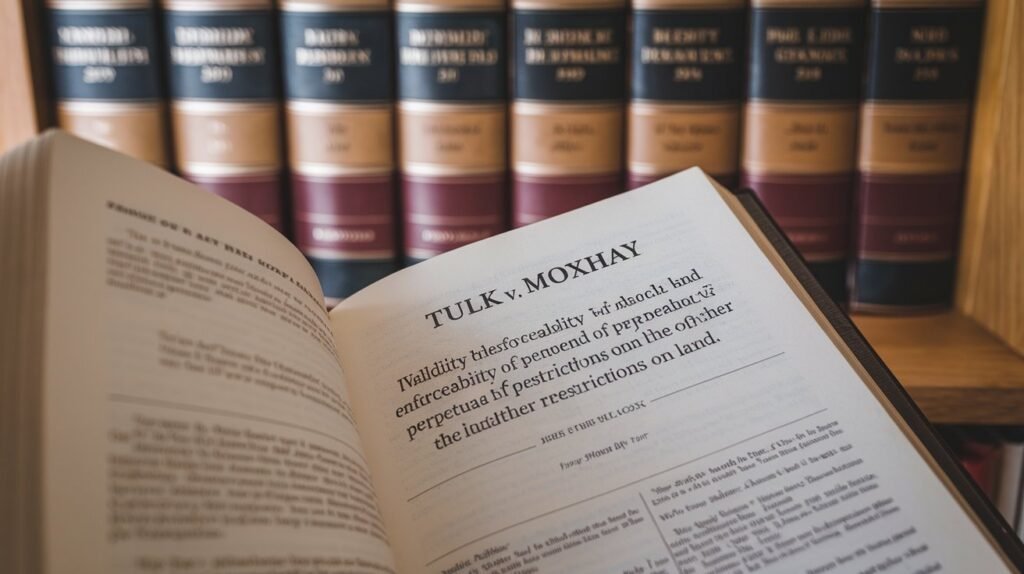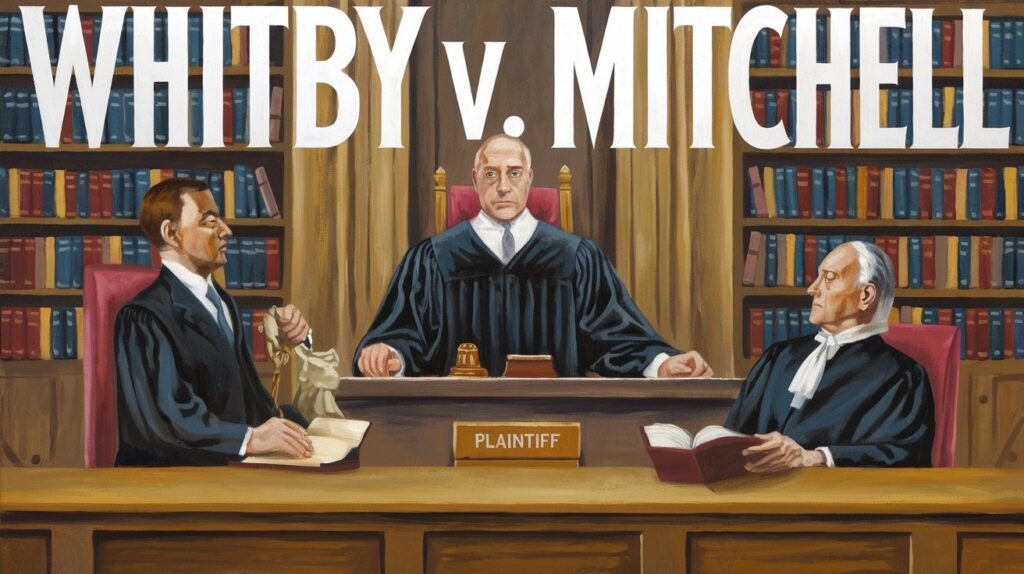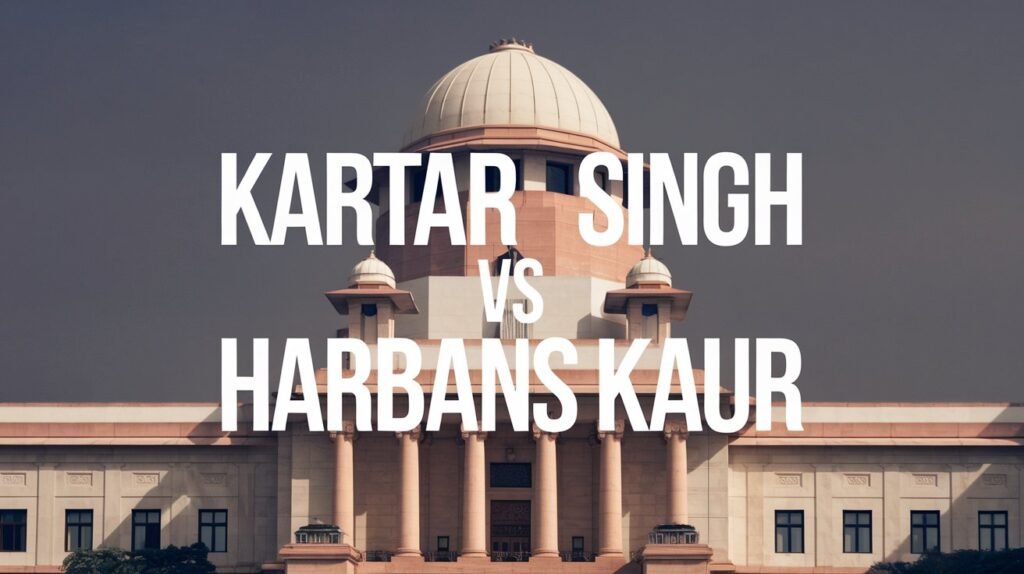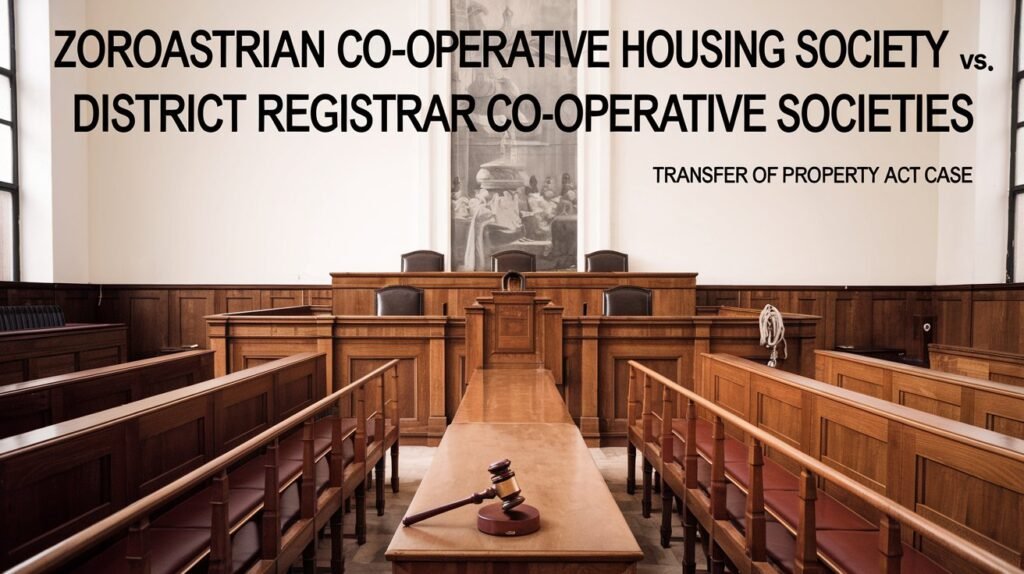Tulk v. Moxhay 1848 (Case Summary)
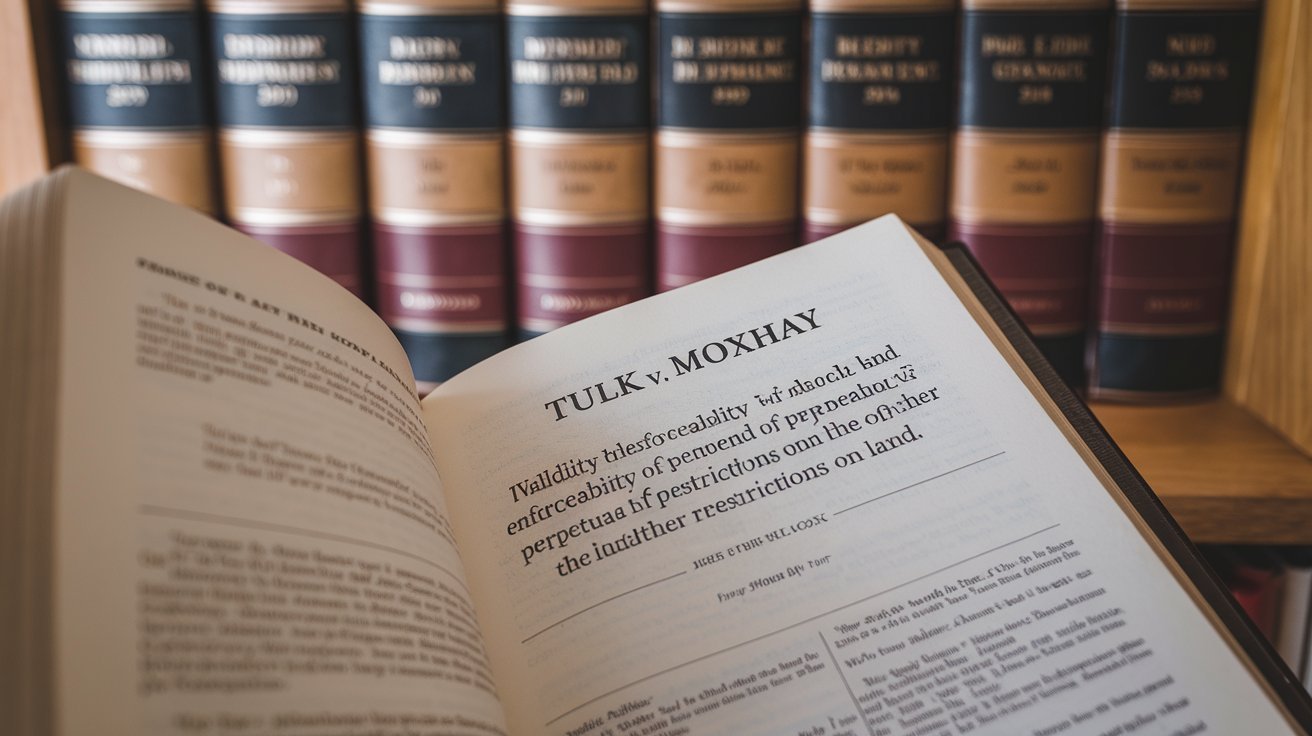
This English case decided on restrictive covenants (Contracts) running with the land to subsequent owners. The case explains the validity and enforceability of perpetual restrictions on land.
Table of Contents
ToggleFacts of Tulk v. Moxhay
- Tulk sold a piece of ground located in Leicester Square to a person with a condition that the transferee will not erect any property on that land. This covenant was expressly contracted and was perpetual in nature, (i.e. this restriction will be transferred to all subsequent owners of the property).
- After years, the land finally went to Moxhay, he had the notice about the covenant attached with the ownership of the ground.
- Even after the notice, Mr. Moxhay manifested an intention to change the structure of the ground and erect a building on the ground.
- Plaintiff filed for injunction to stop Mr. Moxhay from erecting any building on the ground stating the covenant that restricted him to do so.
Issues framed
- Whether a covenant transfers with the ownership of the property to bind future owners of the property?
- Whether Mr. Moxhay is bound by the covenant to not build anything on the ground despite being the owner?
Judgment of Tulk v. Moxhay
The court analyzed the principles of common law and came to a conclusion that a covenant attached can be of perpetual nature. A restriction of this type can be attached with the sale of land which may also bind the future owners of the property.
The court held the covenant to be valid and enforceable. The court accepted the plaintiff’s contention that a covenant can be enforceable against the future owners of the property. The court emphasized that Moxhay was having notice about the restriction that started with the first purchaser of the land and with that notice allowing Moxhay to construct a building in breach of the covenant is not possible.
Indian Scenario
The Indian Scenario may not exactly be on the same lines with the principle accepted in this judgment. In India, section 11 of the Transfer of Property Act explains some conditions where restrictions are not valid.
Section 11 Restriction repugnant to interest created.—Where, on a transfer of property, an interest therein is created absolutely in favour of any person, but the terms of the transfer direct that such interest shall be applied or enjoyed by him in a particular manner, he shall be entitled to receive and dispose of such interest as if there were no such direction.
Where any such direction has been made in respect of one piece of immovable property for the purpose of securing the beneficial enjoyment of another piece of such property, nothing in this section shall be deemed to affect any right which the transferor may have to enforce such direction or any remedy which he may have in respect of a breach thereof.


